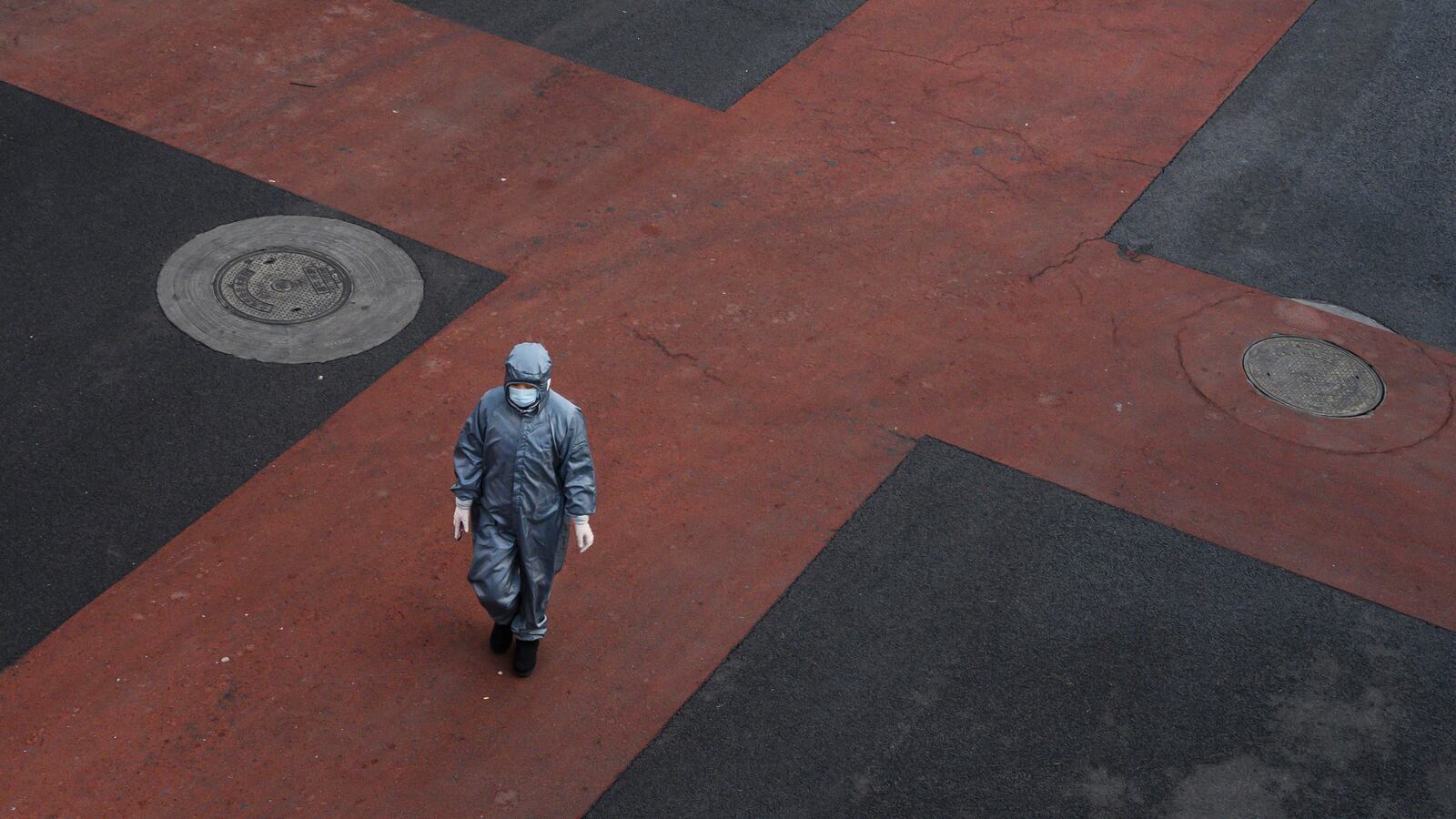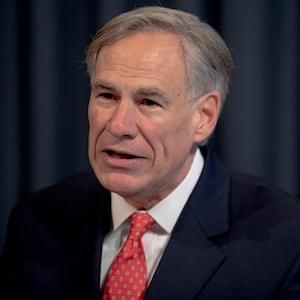As states rush to get back to work and President Donald Trump orders the nation’s coronavirus task force to switch its focus to reopening the economy, health experts are pressing more than ever the need for contact tracing.
It’s a tool that proved effective in past epidemics like SARS and Ebola, and it’s regarded as essential to safely reopening the country with the looming threat of higher surges in cases. But it’s also complex and time-consuming.
Before the coronavirus pandemic, there were only about 2,200 contact tracers, or disease detectives, in the U.S., according to the Association of State and Territorial Health Officials. Former CDC Director Dr. Tom Frieden estimates that the country needs at least “several hundred thousand” in order to effectively trace the network of those infected with COVID-19. The National Association of County and City Health Officials recommends 15 tracers per 100,000 people in normal times, increasing to 30 tracers during a pandemic.
The goal of contact tracing is to identify an infected person and track down every person and location that might have been exposed “for a prolonged period of time” during the incubation period. They’re not told the identity of who might have exposed them, according to the CDC. Contact tracers reach out to them via phone, email, or social media. People who are told they were exposed can self-isolate and subsequently break the chain of infection.
But a big challenge is that state and local public health departments need a huge amount of people and resources to conduct widespread tracing. The CDC, which has deployed about 500 of its own workers to help state and local agencies, has urged states to start ramping up contact tracing teams massively.
Scott Gottlieb, a former Food and Drug Administration chief, told NPR as many as 180,000 contact tracers will be needed “if we want to enter into the fall with the kinds of resources we need to try to trace infection to prevent large outbreaks.”
Most states have some form of contact tracing, particularly in local health departments. Here are the states that are ramping up significant COVID-19 contact tracing efforts, and are calling on volunteers to sign up.
Any U.S. resident with a high school diploma and access to the internet can sign up to be a tracer with D.C.-based CONTRACE Public Health Corps and earn an average of $17 to $22 per hour, according to the job posting.
CALIFORNIA
Gov. Gavin Newsom will announce guidelines on Thursday for phase two of the state’s reopening plan. The Golden State plans to enlist 20,000 people in two months to follow the train of coronavirus exposure, which health experts warn is on the lower end of the total number needed for the state’s 40 million residents. California began sending out 50 contact tracing volunteers last week.
“We’ve been doing contact tracing for years and years and years, decades in California,” Newsom said. The program, in partnership with the University of California, Los Angeles and the University of California, San Francisco, will involve a 20-hour online training for workers beginning Wednesday.
Newsom said 23 of 61 local health departments are currently tracing coronavirus exposure and he plans to reassign state officials to the task after training them with “the right kind of background cultural sensitivity, cultural competency, different language skills, a healthy mindset.”
NEW YORK, NEW JERSEY, CONNECTICUT
Gov. Andrew Cuomo announced in late April that the state would immediately launch a “nation-leading” coronavirus contact tracing program, with between 6,400 and 17,000 tracers—equivalent to 30 per 100,000 residents. The program, in collaboration with former New York City Mayor Mike Bloomberg’s charity, “will be done in coordination with the downstate region as well as New Jersey and Connecticut.”
The program involves an online curriculum developed by The Bloomberg School of Public Health at Johns Hopkins University for contact tracers.
“The numbers indicate we are past the apex of this pandemic, and while we start our work to re-open our economy, we must ensure we are doing it in a way that does no harm and does not undo all of the work and sacrifice it has taken to get here,” Cuomo said.
MASSACHUSETTS
Gov. Charlie Baker was an early contender in the contact tracing initiative, announcing in early April that the state would hire 1,000 disease detectives in collaboration with Boston-based nonprofit Partners in Health. Qualifications for the job include the ability to speak, read, and write English as well as the “ability to show empathy to distressed individuals.”
The Massachusetts Department of Public Health collects identifying information about infected individuals and drops it into a state database. Workers from the Contact Tracing Collaborative then reach out to those infected and begin tracing their contacts. The CTC is providing shelter for coronavirus patients who are not able to isolate at home or do not have one.
“Every city and town in Massachusetts with cases is doing contact tracing in some form or another,” Sigalle Reiss, president of the Massachusetts Health Officers Association, told WBUR. Hundreds of public health students have already volunteered to join the effort, according to WBUR.
WASHINGTON, D.C.
Washington, D.C. has begun hiring at least 900 contact tracers as new data reveals that the district is emerging as a hotspot for the virus.
“We are looking for persons who have an ability to be empathetic, to be compassionate and caring because you’re talking to people who are going to be anxious about this,” Ventris C. Gibson, director of the D.C.’s Human Resources Department, told NBC Washington. “We will come through this together. [Mayor Muriel Bowser] has equipped human resources and DC Health to make sure that we have that sense of urgency and get to the goal line.”
Mayor Bowser called on residents to join the tracing force, saying “how we identify [the sick], isolate them, reach their contacts, and quarantine them, will determine how successful we are in reopening.”
MARYLAND
Gov. Larry Hogan said the state needs an army of contact tracers to coincide with his three-phase plan to reopen the state. “We plan to quadruple this force to at least 1,000 contact tracers by utilizing state employees, outside contractors, and through other methods,” Hogan said.
The Maryland Department of Health is teaming up with the National Opinion Research Center in a program that will involve a database called “COVID Link” that compiles tracing information. Hundreds of people have already applied for contact tracing positions in Maryland.
Volunteers are required to be “willing to work set shifts (4-6 hours at a time)” and can involve “teachers, real estate agents, and some sales/customer service jobs,” who have skills that “translate to data collection positions.”
LOUISIANA
The state has 70 hired contact tracers but plans to expand the team to 700. “This is a massive scaling up and there will be some contracting of local agencies to assist with that,” said Dr. Joseph Kanter of the Louisiana Health Department.
New Orleans Mayor LaToya Cantrell said on Tuesday that business owners in the city are required to track everyone who enters their establishments once the city begins to reopen. “Contact tracing just doesn’t involve the government alone,” she said. “As we pivot to reopening, that contact tracing really allows us to box in the virus. And that’s what our focus will have to be moving forward.”
VIRGINIA
Gov. Ralph Northam, who has outlined the first phase of his reopening plan, said the Virginia Department of Health is actively hiring 1,000 people to work as contact tracers in the next two weeks. Government staff members have already been reassigned to the task, as well as volunteers from the Medical Reserve Corps.
TEXAS
Gov. Greg Abbott has greenlighted all retail stores, restaurants, theaters, and malls to reopen on May 1 with 25 percent capacity, and salons are slated to reopen on Friday. The state plans to hire 2,850 contact tracers, adding to its current pool of 1,150.
The Texas Department of State Health Services has developed an app called Texas Health Trace to facilitate contact tracing.
WASHINGTON
Gov. Jay Inslee said the state, which was one of the early U.S. epicenters of the coronavirus, plans to hire “roughly 1,500 workers focused solely on contact tracing by the second week of May,” adding, “This workforce will be rapid-response, something like a fire brigade.”
The state has a team of 700 contact tracers, both state and local public health employees, but plans to recruit volunteers from the National Guard.
OHIO
Gov. Mike DeWine has outlined a plan in partnership with Massachusetts-based Partners in Health to hire a team of 1,750 contact tracers.
The Ohio Department of Health is hiring temporary workers and supervisors. The department has put out a call for volunteers. The role is expected to last for 12 to 18 months with an hourly rate of $18.95.
NORTH DAKOTA
North Dakota has met the estimated need of 30 tracers per 100,000 people but plans to raise that number to 66 per 100,000 residents. North Dakota contact tracing administrator Vern Dosch said 352 people have already been trained.
“North Dakota leadership believes widespread testing capacity paired with a robust contact tracing infrastructure are key components to rising above this current health challenge,” Vern Dosch told NPR. “We are committed to investing in the human resources and technology needed to make it happen. We are building tomorrow on facts, not fear.”
MICHIGAN
State health officials say they have trained 3,500 people to trace coronavirus contacts. The Michigan Department of Health and Human Services announced plans to launch the large-scale initiative in late April.
“MDHHS is also working with local health departments to expand testing in group living facilities with potential exposure,” Dr. Joneigh Khaldun, chief medical executive and chief deputy for health, said in a statement.
PENNSYLVANIA
Pennsylvania was late to announce plans for contact tracing, but the state health department said “additional contact tracers will be needed to accomplish case investigation, contact tracing and monitoring” in the “later phases of reopening,” according to the government’s website.
“We are building an entire program that involves people and we're looking at different technologies that will help us out,” said Health Commissioner Dr. Thomas Farley. “Certainly, we’ll need some technology simply to track the information.”
UTAH
Lt. Gov. Spencer Cox said in April that 1,000 state employees were being trained in contact tracing. Utah also launched an app to support the state’s contact tracing plan by giving state health workers a better picture of where and how the virus is spreading. At least 36,000 residents have downloaded the “Healthy Together” app, which Gov. Gary Herbert said “will help us slow the spread of the COVID virus and, as much as we can, stop its spread.”
Additionally, some local health departments have their own programs. For example, Salt Lake County reportedly increased its ranks of contact tracers from 31 staffers in the Infectious Disease and Epidemiology bureaus to 130.
KENTUCKY
When he announced a four-phased plan to reopen in late April, Gov. Andy Beshear said the state plans to hire 700 contact tracers, including nearly 500 from the private sector. The state said at the time it would put out a request for proposals.







